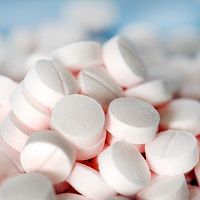Aspirin and Coronary Artery Surgery: Always Question
Most patients with coronary artery disease receive aspirin for primary or secondary prevention of myocardial infarction, stroke, and death.

Most patients with coronary artery disease receive aspirin for primary or secondary prevention of myocardial infarction, stroke, and death.
Aspirin can elevate bleeding risk in patients undergoing surgery, but it may also have beneficial effects. It may improve coronary-graft flow and reduce risk of graft thrombosis, myocardial infarction, and stroke.
Aspirin is routinely restarted within a day after CABG surgery, but it can also help prevent thrombosis, reduce mortality and reduce complications in the early postoperative phase. Professional organizations indicate that there’s little data from large clinical trials indicting whether aspirin should be stopped before coronary artery surgery, and guidelines are conflicting.
The February 2016 issue of the New England Journal of Medicine included a multicenter, double-blind, randomized study, which examined the use of aspirin and its relationship to death and thrombotic complications in at-risk patients undergoing coronary artery surgery.
The researchers randomly assigned 2100 patients to either receive 100 mg of aspirin or matched placebo.
Researchers found that patients in both the aspirin and the placebo arms had similar outcomes. Preoperative aspirin before coronary artery surgery neither lowered the risk of death or thrombotic complications, nor increased risk of surgical bleeding, transfusion, or reoperation.
This study documented an incidence of postoperative myocardial infarction of 14.8%, which was higher than what was usually seen in observational studies of CABG surgery. The researchers were able to detect small myocardial infarctions, because the study included troponin surveillance and stringent reviews of patients.
Among patients undergoing coronary artery surgery, the administration of preoperative aspirin resulted in neither a lower risk of death or thrombotic complications nor a higher risk of bleeding than experienced with placebo.
The researchers reported they were determining whether it was best to stop or continue aspirin in patients undergoing coronary artery surgery.
Their findings indicated that stopping or continuing aspirin appeared to make no difference.